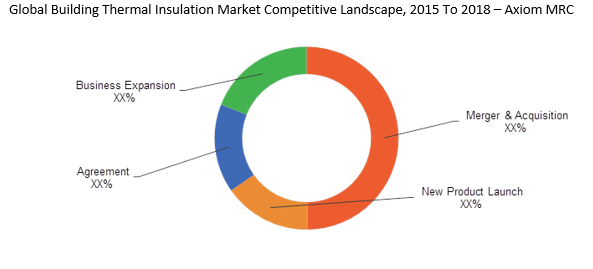Rapid Development and Investments In Building & Construction Industry To Boost Building Thermal Insulation Industry
Thermal
insulation in buildings helps to reduce the carbon footprint as it utilizes
less energy to maintain a temperature and limits the conduction of heat to the
external environment. Increase in building and construction industry &
construction industry will flourish the building thermal insulation market.
Moreover, the pace of change in the construction industry and rising
investment in infrastructural development in developing and developed countries
globally continues to accelerate the demand for building thermal insulation.
Moreover, according to PwC report on infrastructure development in Asia
Pacific, much of future spending in infrastructure will be driven by the
faster-growing economies in Asia, where the share of infrastructure
spending in Asia Pacific is set to grow from 30% in 2012 to 40% in 2018 and 48%
by 2025, largely driven by increasing demand from China.
Alongside
rising awareness about the energy saving practices in Asia Pacific and Latin America
is likely to boost the demand for building thermal insulation in near future.
Initiatives by the U.S. government through Weatherization Assistance Program
(WAP) to promote thermal insulation through federal funding are expected to
increase the demand for building thermal insulation. Building energy codes help
ensure that new buildings use energy efficiently, and this can reduce building
energy use by 50% or more compared to buildings designed without energy
efficiency in mind. This is important because buildings typically last 30-50
years, and it is much less expensive and time-consuming to design for energy
efficiency than to retrofit a building later.
The
growth of building and construction industry directly influence the demand for
building thermal insulation. The major driver for growth in infrastructure and
construction industry is the rising wealth, urbanization, digital commerce and,
finally, the continued economic integration of the region. Moreover, rising
number of rural residents look hopefully towards big city life and are
attracted by the promise of improved economic prospects and quality of life,
including more culture, better healthcare and education which leads to
increasing demand for infrastructure which ultimately results in rising demand
for building thermal insulation.
BASF
SE, Saint-Gobain S.A, Owens Corning, Dow Building Solutions, Kingspan Group
PLC, Johns Manville Corp, Rockwool International A/S, Paroc Group Oy, GAF
Materials Corp, Beijing New Building Material (Group) Co., Ltd and Knauf
Insulation, Inc. are some of the key manufacturers of building thermal
insulation. Because of the rapid development of infrastructure in emerging
regions, the major players are now focusing on achieving a first-mover
advantage in the lucrative markets that this has generated. Mergers,
Acquisitions and partnership are the prominent strategies adopted by the
players to reinforce their position in the global market. In August 2018,
Saint-Gobain acquired HKO which is a manufacturer of very high temperature
thermal insulation and fire protection solutions made from various types of
glass fibres.
According to Axiom MRC, Global
Building T



Comments
Post a Comment